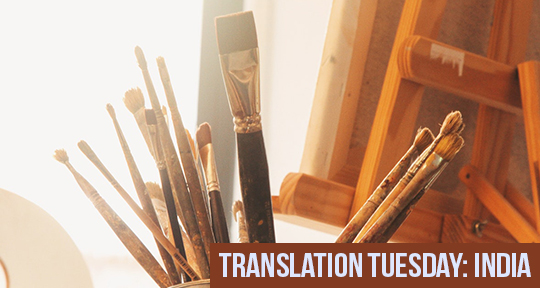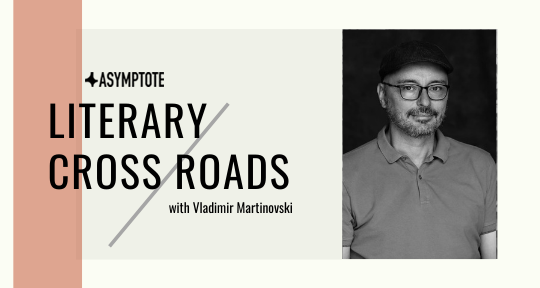This Translation Tuesday, we feature the poetic reflections of Sakthi Jothi, translated from the Tamil by Thila Varghese. With painterly verse, Sakthi Jothi extracts a perfect image from the intensities of an “undissolved dream.” Feelings are captured in the lines, and colour and tools are sought to map their depths—but success may come at a price.
The Painting of a Dream
I am drawing
an image of me
that remains embedded
in an undissolved dream of mine.
I tried to put together a figure
by extending the lines in the summer
and contracting them in the winter,
stretching the lines farther
and erasing some of them as unwanted.
I painted it with colours
specific to each season.
It was only
during the times
passed in searching
for brushes and colours
to paint with precision
all the details,
such as the loneliness
that is undissolved by anything at all, READ MORE…


